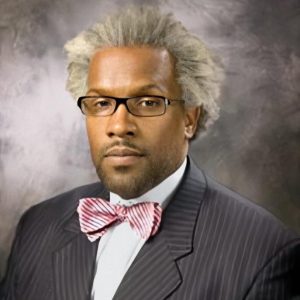Battling tradition in a male-dominated field
March 21, 2023

From wrapping wounds in white tents to standing in full military uniform on an active battleground, the role of women in the military has been expanding since the 19th century.
Despite women making up nearly 17.3 percent of active-duty military and 21.4 percent of reserves, according to the Department of Defense, there are still some severe stigmas against joining such a male-dominated field. But for alumni and Coast Guard LTJG Brigit Jogan ’16, this was merely a bump in the road.
“Anyone can run a Google search and find numbers on women in the military,” Jogan said. “But there are a lot of reasons for that. Family priorities may be a reason for the numbers – and that’s an amazing choice for a lot of people. I would also say tradition plays into it. This isn’t considered a (feminine) role, and that may turn some people away.”
There are certain risks with joining the military, and depending on the source, those may change with gender. But according to Naval Academy applicant Ava Oskui ’23, this wasn’t something she was going to let define her experience. Rather, she wanted to be a part of the prestige and strength of a military institution.
“The application process was very long,” Oskui said. “I started the preliminary application in June, and then proceeded to do the normal application. Being a female, there were additional appointments and medical requirements compared to male applicants. But on the flip side, we had less of a physical expectation.”
These requirements were a part of the candidate fitness test (CFA), which was designed to evaluate applicants’ physical potential in each of the military academies: United States Naval Academy, United States Air Force Academy and United States Military Academy.
They included 95 crunches, 50 push-ups and a 6:00 mile, among other things. For Oskui, however, physical fitness was not the daunting task during the application. It was ensuring that she and her parents were on the same page.
“I’m pretty nervous to go into it, but I don’t think these fears are due to it being a male-dominated field,” Oskui said. “My parents are definitely nervous for me to be in a career like this, but I knew I wanted to go. Even if it’s mostly guys — that pushes me to be better and to help pave the way so other women aren’t afraid.”
This fear of entering a field that lacked female representation is a shared one, according to Jogan. But she doesn’t regret any of the chances she’s had during her time in the Coast Guard, and she’s excited to see how her time there continues to shape her.
“No one’s experience, regardless of gender, is ever fully positive,” Jogan said. “But in my time here, I’ve had such amazing experiences. Of course, working with civilian mariners, there may be some significant predispositions. But even then, it’s been worthwhile. My male coworkers have always backed me up and helped me get the respect I deserved. To us, it’s about being a team, and standing together, not gender.”
Being a member of a team was also important to retired Army veteran, Sherette Cline. To her, being a woman in the military was like having a second team, like there was an unspoken standard of kinship.
“My female soldiers and I try to build each other up,” Cline said. “We knew how important it was to stand together. And there was so much comradery between the females in my unit — we wanted to make sure we looked good as the next guy. That’s what was important.”
According to Psychology Today, many women working in close quarters may feel the need to out-do each other. This was far from Jogan’s experience.
“It’s easy, when women are in the minority, to feel that we need to one-up each other,” Jogan said. “But the women I have served with are incredible, capable people, and I loved working with them. We don’t just add to each other when we’re together – we multiply.”
That’s not to say being a woman in the service is simple. Even with the altered physical requirements, the biological differences can put many women at a disadvantage. According to Cline, however, this was all the more reason to succeed.

“I’m a small person,” Cline said. “Back when I first joined, I was 5’1’’, 110 pounds, a tiny litt
le thing. My biggest obstacle was the physical portion. Obviously, biologically we’re different. There are a lot of men that are simply stronger. I had to try a little harder to get to that point, work a little more. But I did it. It just takes time and training.”
These standards are “set for a reason”, says Cline. Male or female, working on the front lines in any capacity requires dedication and training. And that standard shouldn’t be sacrificed for the sake of diversity.
“Women that join need to be prepared to earn what they have, not get it handed to them,” Cline said. “The military is the most dominant fighting force on the planet. We are made to win wars – women can do that in a lot of ways, but we should never expect that standard to be lowered for us.”
To be a part of such a group is a beautiful thing, according to Jogan. As a man or a woman, from the academy or enlisting, taking the journey into the military is something to find pride in.
“I believe that every woman should do whatever God has called them to do,” Jogan said. “If that means serving in the military, then they should do that with their eyes wide open, knowing the boundaries and obstacles they may face. If it doesn’t, then they should follow their own path. There’s no one set way, for anyone, to take that journey.”
But when all is said and done, on the battlefield or off, they’re “always a soldier”, Cline says. It’s not a matter of what capacity they served in, or were, or when. They’ve earned their respect.
“When you see an old man or woman, and they have their old ball cap that says ‘veteran’, take a moment to shake their hand and thank them,” Cline said. “It’s important we don’t forget what they sacrificed for their country. You’ll never see a brighter look than when you go up and thank them for their service. They gave up a portion of their life, not knowing if they would come home, because they felt it was important to serve their country. That pride remains.”















































































